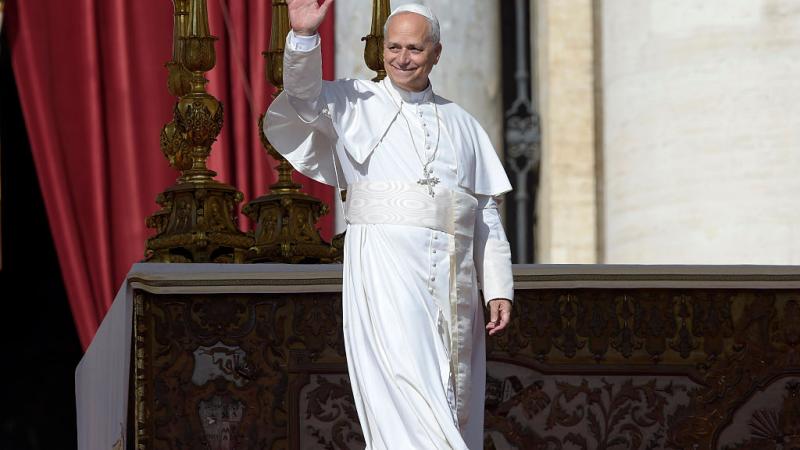Amid global conflicts, Pope in Christmas address takes on weapons industry, 'puppet strings of war'
Now in the 11th year of his papacy and in poor health, Francis has increasingly shifted his focus toward secular and cultural topics.
Pope Francis again waded into geopolitical waters during two Christmas blessings, taking aim at the global weapons industry and shining a light on the world’s main conflict areas.
Now in the 11th year of his papacy and in poor health, Francis has increasingly shifted his focus toward secular and cultural topics. He gave the blessings on Christmas Eve and Christmas Day from Vatican City, in Rome.
The traditional “Urbi et Orbi” (To the City and the World) blessing issued during the most solemn religious occasions, often focuses on topics causing misery in the world. In recent years, such blessings have focused on the coronavirus pandemic, poverty, pride and hypocrisy, the war in Ukraine and cultural divisions.
This year the pontiff focused on the causes of conflict, declaring that arms producers were no more than dealers in “instruments of death” and expressing grief for victims of ongoing conflicts, including the clash between Armenia and Azerbaijan, in the Congo, Gaza, South Sudan, Syria, Ukraine and Yemen.
“It should be talked about and written about, in order to bring to light the interests and the profits that move the puppet strings of war,” the pope said. “How can we even speak of peace, when arms production, sales and trade are on the rise?”
For Monday’s blessing, Francis was seated at the central balcony at St. Peter’s Basilica, with tens of thousands gathered in the plaza below, despite chilly weather and grey skies.
But for his Christmas Eve blessing Sunday, the pontiff appeared in a wheelchair as he drew a contrast between the Christmas story and recent events in Israel and Gaza.
“Tonight, our hearts are in Bethlehem, where the Prince of Peace is once more rejected by the futile logic of war, by the clash of arms that even today prevents him from finding room in the world,” Francis said Sunday during a mass for a few thousand invitees inside St. Peter’s Basilica in the Vatican City. Thousands more watched on large screens outside.
On Sunday and Monday, Francis moved slowly and he struggled at times to catch his breath.
Information on the earliest popes is limited, but only seven of the 265 popes who preceded Francis are known to be older than the current pontiff at the time of their death. The consensus belief is that Francis, who turned 87 earlier this month, is in the final phase of a precedent-setting papacy.
Three weeks ago, Francis announced that he would like to be buried at St. Mary Major, one of Rome’s basilicas, and he has commented frequently about his various health issues, which include operations for an abdominal hernia and on his colon, speculation about cancer, and well-documented back and knee problems.
Many of the pope’s recent decisions also seemed aimed at cementing his legacy as a reformer of internal Vatican priorities and in playing a more oversized role on the world stage including attempts to broker a peace deal between Russia and Ukraine and normalizing the Vatican’s prickly relations with China.
His legacy may also include fueling a split among Catholics in the U.S., where the pope remains popular among the majority of U.S. Catholics, but with a growing number of conservatives blasting the pope for an agenda they say is too progressive and out of line with Catholic teachings. For his part, Francis let it be known where he stood on the issue last month when he fired Texas Bishop Joseph Strickland, one of the pope’s most outspoken U.S. critics.
(Eric Lyman from Vatican City)
The Facts Inside Our Reporter's Notebook
Links
- coronavirus pandemic
- poverty
- pride and hypocrisy
- war in Ukraine
- cultural divisions
- seated at the central balcony
- Christmas Eve blessing
- 265
- he would like to be buried
- abdominal hernia
- colon
- cancer
- back and knee problems
- legacy as a reformer
- internal Vatican priorities
- peace deal between Russia and Ukraine
- the Vaticanâs prickly relations with China
- a split among Catholics in the U.S
- popular among the majority of U.S. Catholics
- fired Texas Bishop Joseph Strickland
















